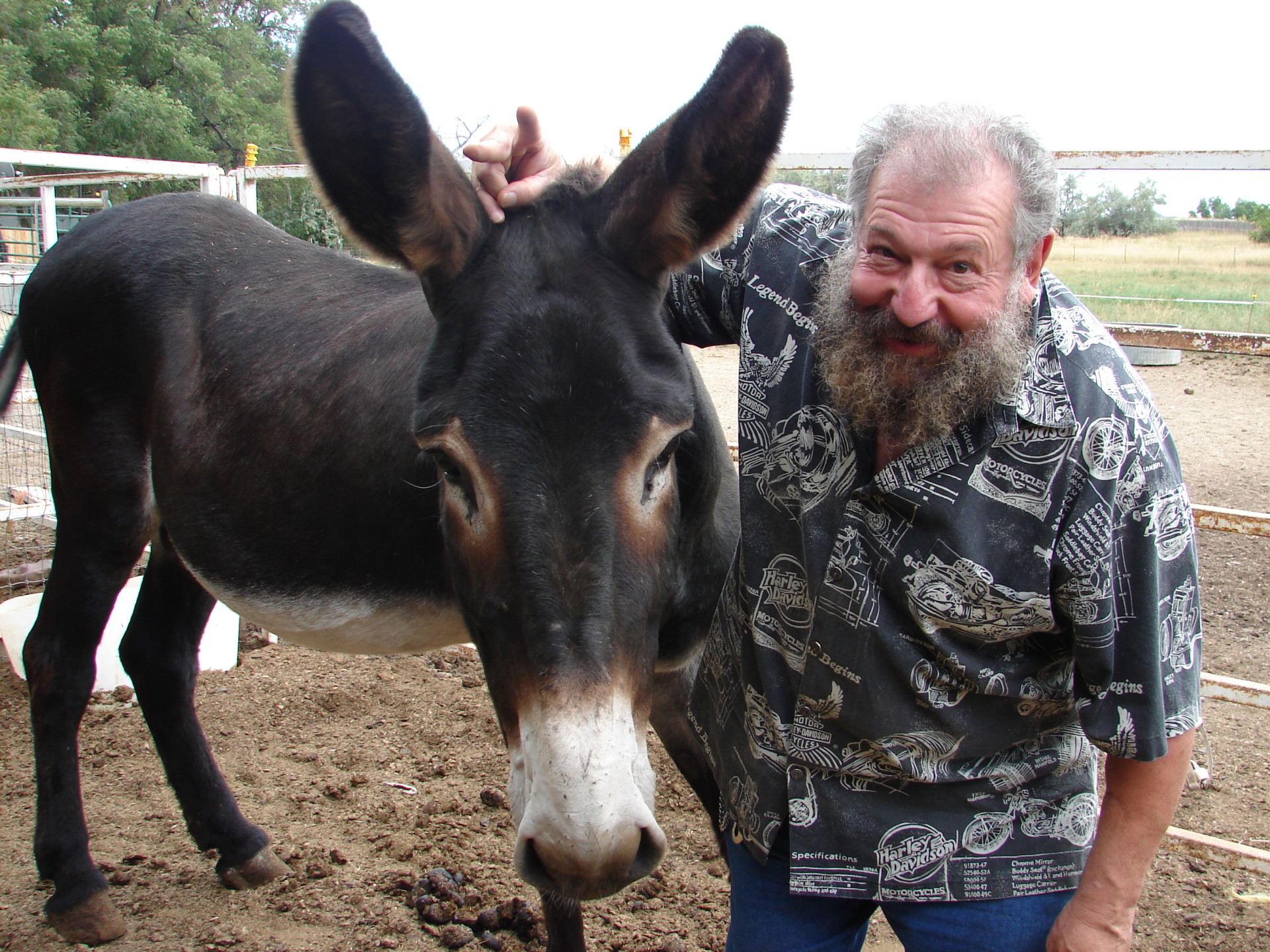
Tough but compassionate.
Someone who made you think.
Over the years, those are a couple of ways people have described Bernie Rollin, a University Distinguished Professor at Colorado State University widely known as the father of veterinary medical ethics.
Rollin passed away on Nov. 19 at the age of 78, nearly a year after retiring from a career that spanned more than five decades at CSU.
His work had a profound effect on a broad swath of the population, including veterinarians, livestock owners and pet owners.
“Bernie Rollin was a great friend to me, and to all living creatures. He challenged us, individually and as a society, to think about what ‘humane’ treatment of others really means — and in doing so, he transformed the way universities like CSU approach animal care. He was unafraid to question authority, to provoke a debate or challenge the status quo, but he did it always as an educator and philosopher — and as someone who expected us all to try to do and be better. I will miss him.”
— CSU Chancellor Tony Frank
Despite his often-gruff exterior, he revealed a soft side that taught people how to treat animals humanely. And he taught his students how to think critically about moral judgment calls that must be made regularly in their professions.
Overcoming a tough crowd
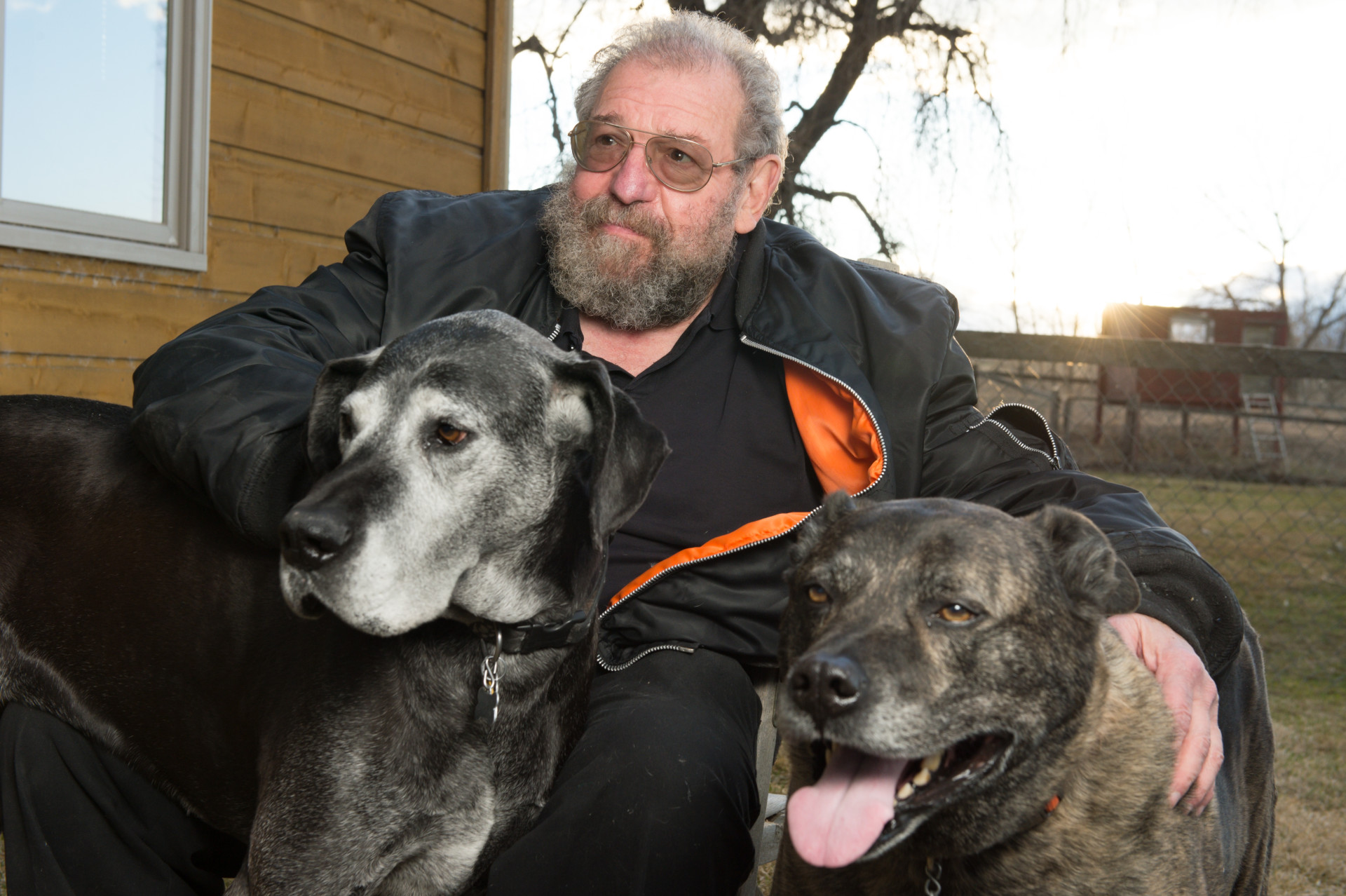
One of his favorite stories, told with his usual expletives and New York accent, was a lesson for our times. It was about traveling to a small town on Colorado’s eastern plains to give a lecture to a bunch of ranchers in 1982.
“I was introduced as the guy who had started the field of veterinary medical ethics,” Rollin would say. “They booed and hissed for one minute and 37 seconds. I asked if they had read my stuff or heard me speak, and when they said no, I said, ‘How can you boo my ideas if you don’t know what they are?’”
“Bernie Rollin made groundbreaking contributions to the field of veterinary medical ethics. His work had profoundly positive impacts on the lives of both animals and people, and his lessons and philosophy will live on through his work and the many students he taught.”
—CSU President Joyce McConnell
When the crowd continued to be rude, he got angry and offered to take them outside, one by one. “After all, I grew up in Brooklyn!” he would say with a laugh. That settled them down, as did the next two questions he asked them:
“Do you believe in right and wrong?”
“Yes,” audience members replied.
“And would you do anything to an animal to increase your profit?”
The answer from the crowd was no.
“So I said, ‘Good. Now we’re just haggling about price.’”
Path to CSU
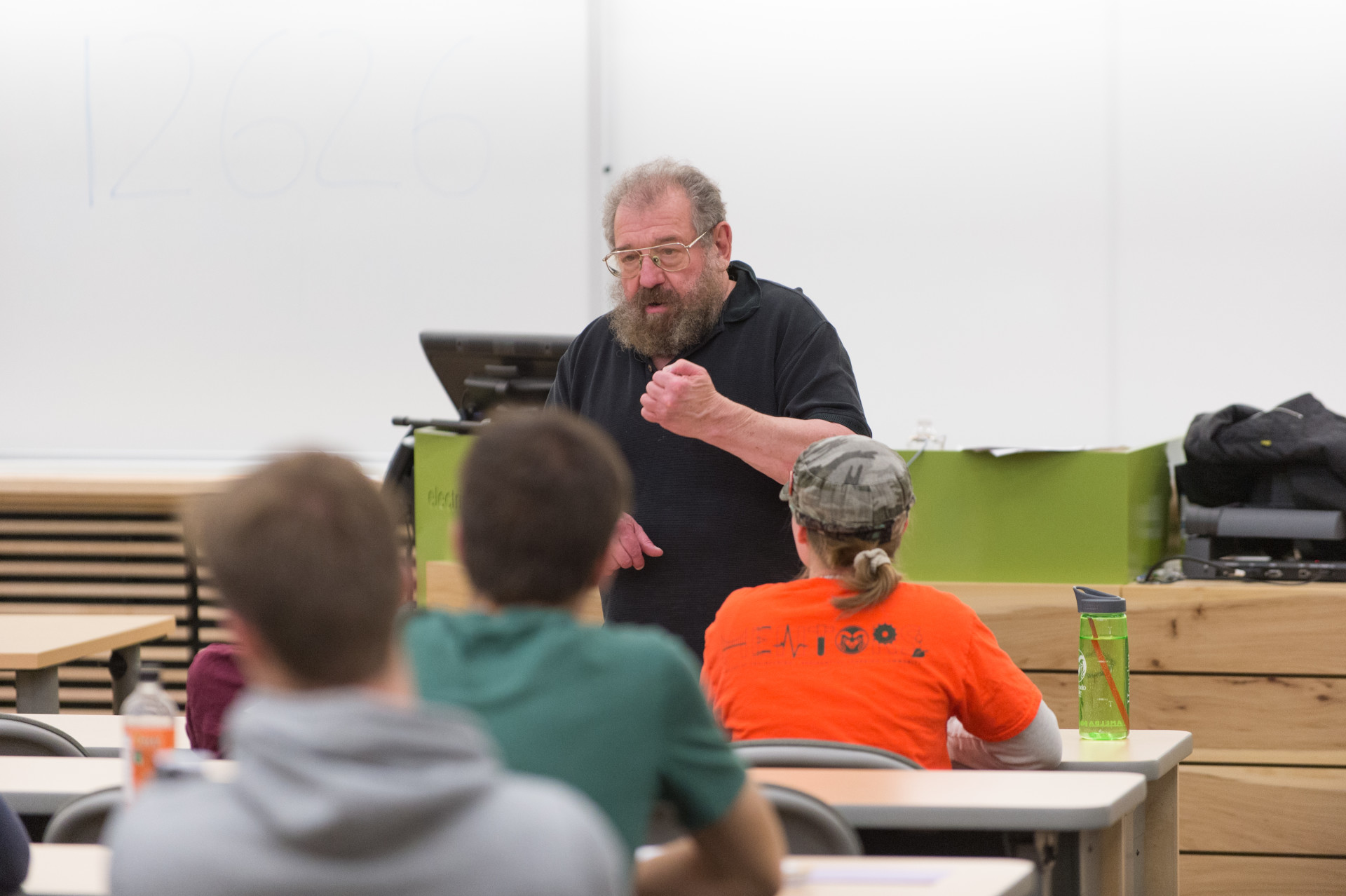
Rollin was born in Brooklyn, New York, on Feb. 18, 1943, the son of Philip and Yetta Rollin. He met his wife of 57 years, Linda, when they were freshmen at the City College of New York in 1960, but it took him a year to ask her out on their first date. They were married in 1964 and immediately sailed for Scotland, where Bernie had a Fulbright fellowship at the University of Edinburgh.
He returned to earn a Ph.D. in philosophy from Columbia University. The couple wanted to get out of New York and move as far away as they could, to a place that was the opposite of the big city. They chose then-bucolic Fort Collins, where Bernie accepted a professorship at CSU in 1969.
“All of my graduate students were required to take a class from Dr. Rollin because he really made them think deeply about the ethics of how animals were treated. He would always ask students: Just because we are capable of doing something, should we do it? He was a supporter of animal agriculture, but he made it very clear that some practices need to be changed to improve animal welfare.”
—Temple Grandin, professor
After establishing himself as a pure philosopher in the 1970s, he shifted focus and dedicated the rest of his career to the welfare of animals in medicine, research, agriculture and society. Employing his dazzling intellect, pragmatic approach, ferocious intensity and in-your-face style, he inspired extraordinary change across the spectrum of animal welfare, earning friends and enemies along the way.
Considered by many as the “father of veterinary medical ethics,” he taught the first-ever course on the subject, and fundamentally changed the way veterinarians are taught and how they practice. In 1982, he co-wrote the federal laws that enforce humane treatment of animals in research. As a result, he has been described as the person “who alleviated more animal pain than anyone in history.” In addition to the philosophy department, he was rostered in the Animal Sciences and Biomedical Sciences departments.
“I’ve lectured to about 25,000 cowboys,” Rollin once said. “I get reports back: ‘I can’t stand the SOB, but he makes me think.’ The biggest compliment you can give a philosopher is to say they made you think, and they remember that stuff. That’s the proof for me, that it’s not just ass-kissing. So I’m blessed. I really am blessed. I get to fight for the things that can’t, and I get to fight against the things that can.”
Publications and lectures
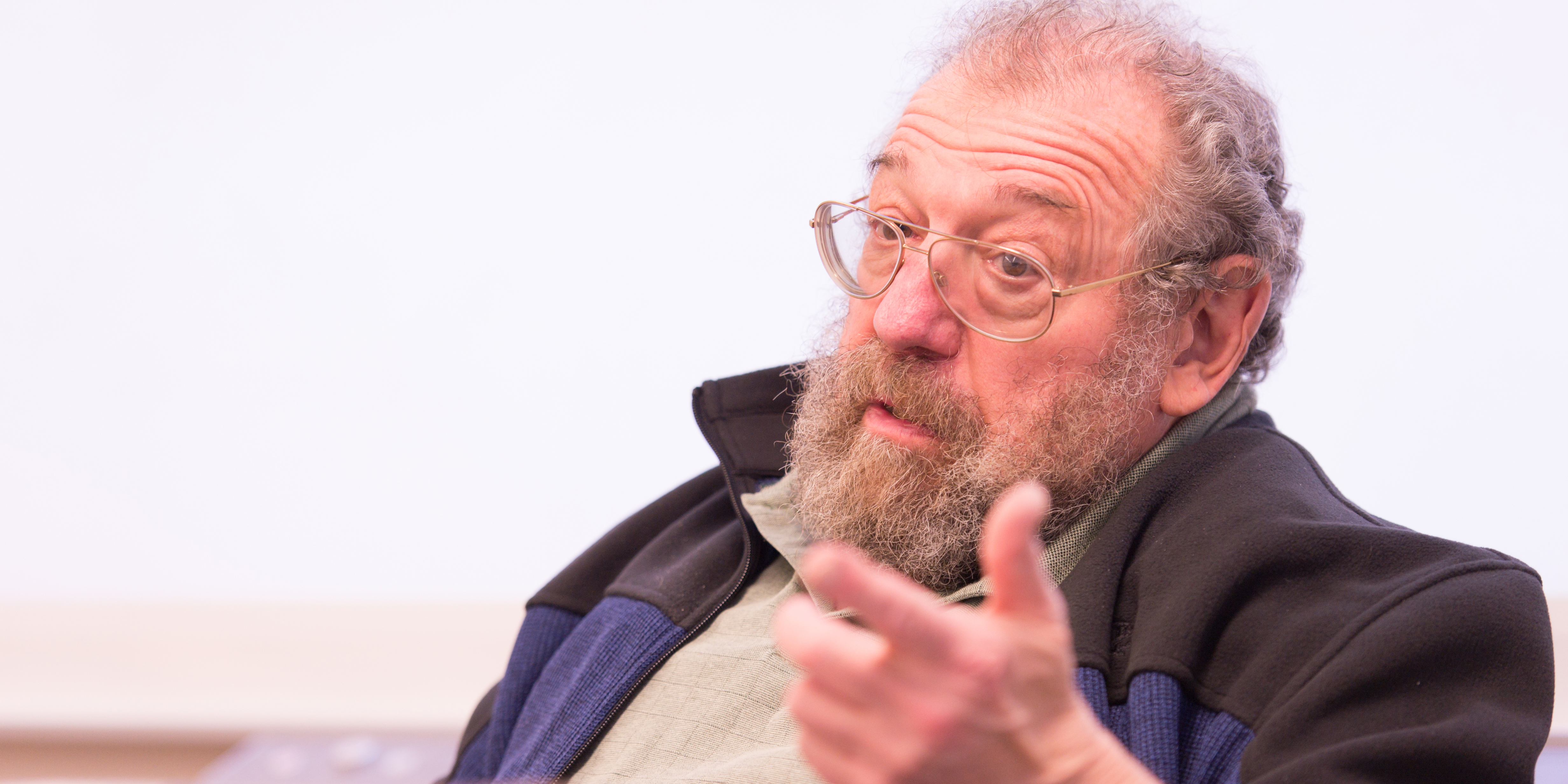
He published more than 20 books (some of which have been translated into Italian, Japanese, Farsi and more) and hundreds of scholarly articles, and he lectured thousands of times across the globe to audiences ranging from surgeons to schoolchildren, researchers to ranchers, zealots to zookeepers.
An article Rollin wrote for The Conversation in 2015 about when it is ethical to euthanize one’s pet is the most-read of all pieces written for that outlet by CSU faculty.
In 2016, he received a Lifetime Achievement Award for Excellence in Research Ethics from Public Responsibility in Medicine & Research. He and Linda, who also enjoyed a long and distinguished teaching career at CSU, retired in December 2020 after a combined 99 years of service.
“Bernard Rollin’s concerns were mainly domestic and research animals, such as food animals, the traditional work animals, horses and mules, and those used experimentally. Tens of thousands of such animals have endured less suffering as a result of Rollin’s seminal work. For this we are all grateful. Bernie and I had Moby gym lockers side by side for three decades. I remarked once, as we took off sweaty workout shorts to head for the shower, that gym lockers could often be better places than lecture podiums for our discussions, and he entirely agreed!”
–University Distinguished Professor Holmes Rolston, Department of Philosophy
Bernie was fiercely dedicated to his family, and despite his professional productivity, always made his wife and son his first priority. He loved sharing his passions for horseback riding, weightlifting and motorcycles with his son, Michael. He worked out with members of the football team, and Linda said his best bench-press was 505 pounds.
This video was made to commemorate Bernie Rollin receiving a Lifetime Achievement Award for Excellence in Research Ethics from the nonprofit Public Responsibility in Medicine & Research in 2016.
Rollin’s legacy
For many years, the sound of a Harley-Davidson in Fort Collins was likely to be accompanied by his bushy beard blowing from under his helmet-less head in the wind with Michael (helmeted) hanging on from the seat behind. He had boundless love for Linda in her unwavering support and care. And he took immense pride in Michael’s character and accomplishments.
“I worked with Bernie for nine years on the Institutional Animal Care and Use Committee. He was smart and salty, and not always easy to work with, but he genuinely cared about animals and students. I think he might describe himself, his life and his work as ‘no bullshit!’ I loved him. He is missed already.”
–Professor Mark Zabel, Department of Microbiology, Immunology and Pathology
In addition to wife and son, Bernie is survived by his brother Robert (Gwen) Rollin of Youngstown, Ohio; niece Susan (Adam) Dunn of Perrysburg, Ohio; and grandchildren Daniel and Lily. Bernie was predeceased by a cat, Mao; a dog, Helga; and perhaps a hundred other four-legged members of the Rollin household, who loved him, and vice versa. The family believe that they are all now reunited at the Rainbow Bridge, where Bernie is seated on a nearby bench, being greeted by innumerable wags, licks and purrs from an immense lapful of furry friends.
Fond memories and expressions of sympathy for the Rollin family may be shared at www.allnuttftcollins.com. A public celebration of Bernie’s life will be held in the spring. Memorial contributions may be made to American Humane Association on behalf of Bernie and his family.
“I admired the way [former CVMBS Dean] Jim Voss spoke so highly of Bernie’s impact on veterinary medicine and him personally. The Voss/Rollin friendship was indicative of Bernie’s ability to bring ideas and people together around questions of right and wrong. It helped that he had a massive chest from consistent weightlifting, and he rode a Harley and he was from New York. All three gave his Ph.D. instant street cred. Bernie was a great friend who made you laugh and think; I’ll miss his tender and warm heart that hid behind a tough-guy facade that he used to occasionally convince the uninformed the difference between right and wrong.”
–CSU video producer Joe Vasos
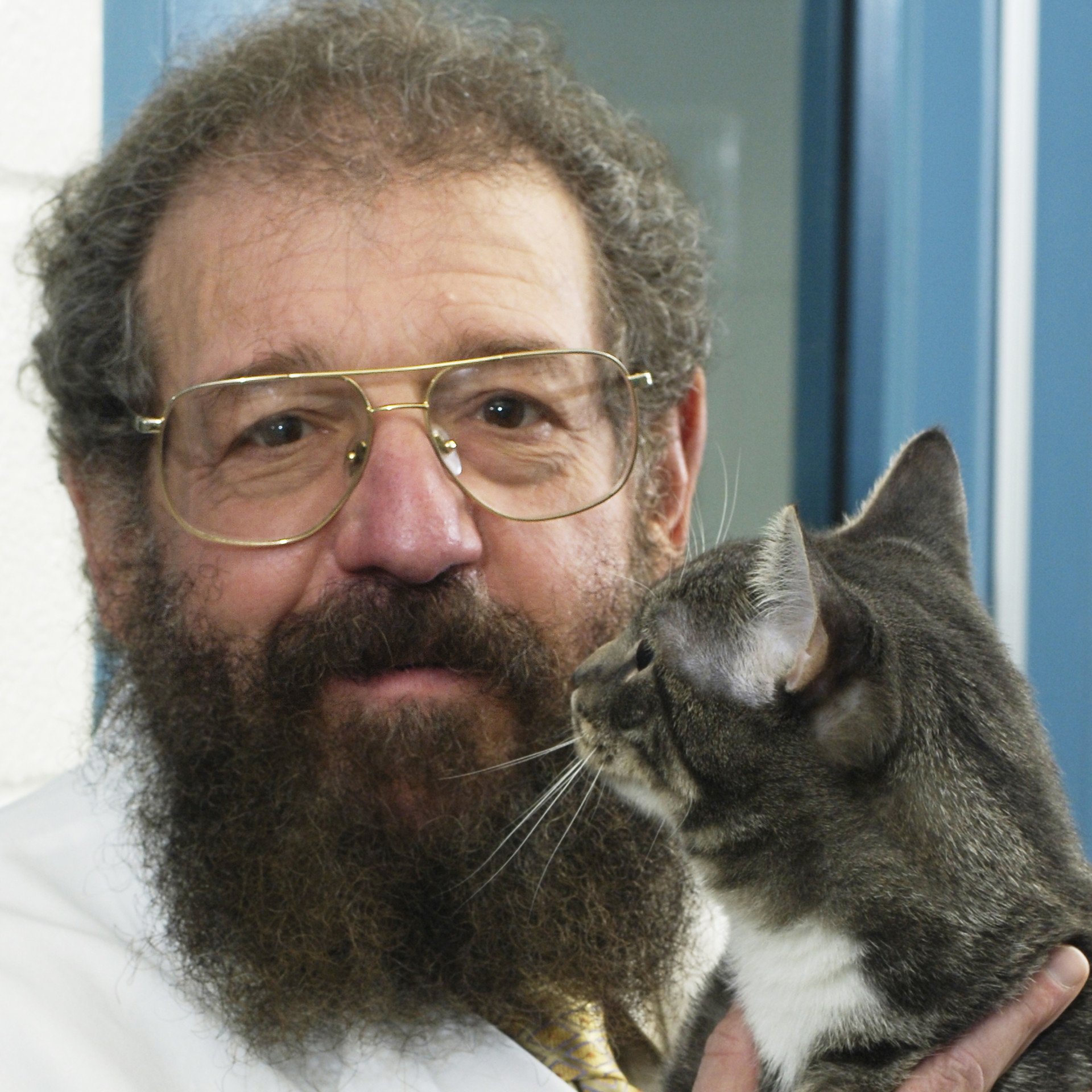
Photo by William A. Cotton